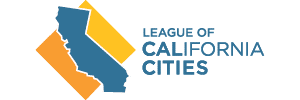Repost from The League of California Cities
Oil by Rail
Since summer 2014, the League of California Cities has been carefully monitoring transport of crude oil and other hazardous materials by rail. Staff has researched this issue as part of an ongoing effort to educate our members, and to better advocate for improved rail safety.
To that end, the League has taken the following actions on this issue:
- September 2014: Hosted a meeting on Oil by Rail, as part of the proceedings of the League’s Annual Conference in Los Angeles, to update members on recent state legislative and budgetary actions geared toward improving rail safety and improving first responder capability to address derailments involving hazardous materials
- September 2014: Issued a Comment Letter to the Department of Transportation on the pending federal rulemaking on rail safety improvements. In that letter, the League called for improved information flow to, and improved training for, first responders, as well as requiring improved safety features for tank cars transporting crude oil, which had already been recommended by federal regulatory agencies.
- October-November 2014: Held a series of educational webinars for League members (see links below). The goals of these webinars were to enhance members’ understanding of the transport of hazardous materials by rail generally, the extent of federal pre-emption of rail safety regulations, and the narrow remainder in which local governments are allowed to regulate. Finally, staff shared with League members the League’s draft policy for safety recommendations to help guide local advocacy efforts on this issue with federal agencies and the relevant federal representatives.
- February 2015: Featured in Western City, the League’s monthly magazine, a cover article on this issue, entitled “A Growing Risk: Oil Trains Raise Concerns” by Cory Golden.
- February 20, 2015: The League Board of Directors approved the draft Recommendations for Improved Rail Safety as the League’s official policy. These recommendations were based on common themes that arose in multiple state regulatory entities’ comment letters, including the Office of Emergency Services, the California Interagency Rail Safety Working Group, and the California Public Utilities Commission.
- March 6, 2015: League of California Cities Executive Director Chris McKenzie issued a letter to U.S. Transportation Secretary Anthony Foxx, submitting ten key recommendations for improving rail safety based on the League’s newly adopted policy, and requested expedited action on their implementation. The letter emphasized that the requested changes be implemented as mandates, rather than recommendations to the relevant industries, that they be accompanied by hard deadlines, and finally, that they be included in the final rule for the Safe Transportation of Crude Oil and Flammable Materials currently under consideration by federal authorities.
Below are links to many of the items referred to above, as well as a sample letter for local jurisdictions to use in advocating to their federal elected officials and to Transportation Secretary Foxx.
Background Materials
- Sample Oil-by-Rail letter for cities to Secretary Foxx
- League of California Cities Oil-by-Rail letter to Secretary Foxx
- League Comment Letter to US Department of Transportation: Proposed Rulemaking on Tank Car Standards
Additional Resources
- A Growing Risk: Oil Trains Raise Safety and Environmental Concerns, Western City magazine, February 2015
- Webinar slides: Oil-by-Rail: Formulating Advocacy – Nov. 6, 2014
- Webinar slides with audio: Oil-by-Rail: Formulating Advocacy – Nov. 6, 2014
- Webinar slides: Oil-by-Rail: A Primer, Part II, Federal – Oct. 22, 2014
- Webinar slides with audio: Oil-by-Rail: A Primer, Part II, Federal – Oct. 22, 2014
- Webinar slides: Oil-by-Rail: A Primer, Part I – Oct. 14, 2014
- Webinar slides with audio: Oil-by-Rail: A Primer, Part I – Oct. 14, 2014



